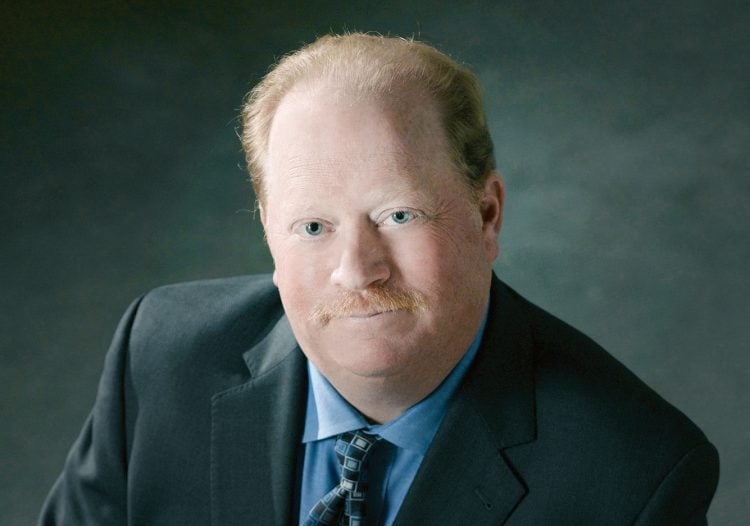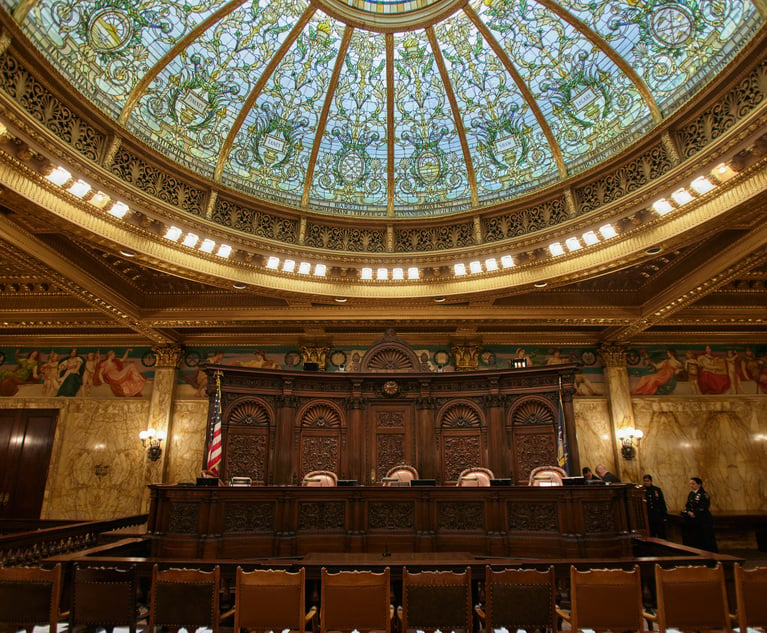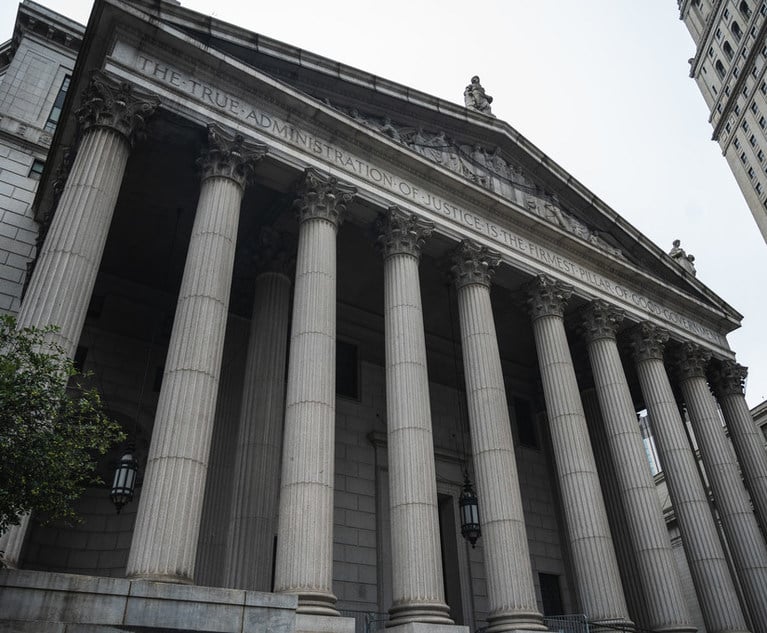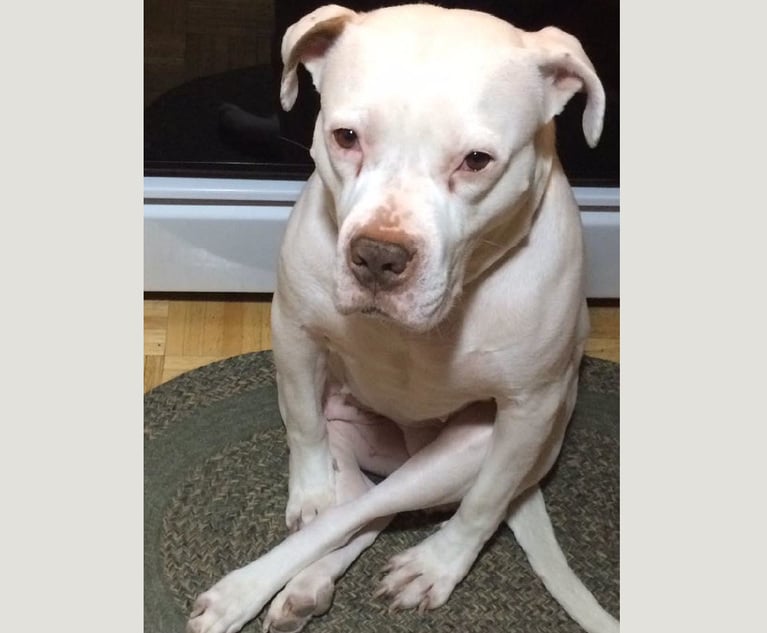Government Officials, and Insurers, in Fight Against COVID-19 Fraud
In his Insurance Fraud column, Evan H. Krinick discusses fraud related to the COVID-19 pandemic relating to everything from loans under the Paycheck Protection Program (PPP) to mis-labeled and missing personal protective equipment (PPE).
July 09, 2020 at 11:05 AM
9 minute read
 Evan H. Krinick
Evan H. KrinickThere have been abundant opportunities for fraud since the beginning of the COVID-19 pandemic. News stories and legal proceedings have highlighted fraud relating to everything from loans under the Paycheck Protection Program (PPP) to mis-labeled and missing personal protective equipment (PPE). Insurers have seen their share of fraudulent or excessive claims as well.
Price Gouging
State and federal authorities seem intent on rooting out and prosecuting fraud related to COVID-19. Consider, for example, that New York has enacted a new price gouging law prompted by COVID-19 fraud. Senate Bill S.8189, signed by Gov. Andrew M. Cuomo on June 6, amends General Business Law Section 396-r to expand protections against price gouging beyond consumer goods to include any products or services vital or necessary to the health, safety, and welfare of consumers or the general public—including medical supplies and equipment such as ventilators. Moreover, the bill, available at https://www.nysenate.gov/legislation/bills/2019/s8189, extends protection against price gouging beyond only consumers to small businesses, hospitals, and other health care providers, and even to New York State, as they purchase products or services for the benefit of the public.
Price gouging seems to be a particular problem during this pandemic. By the time S.8189 became law, New York State Attorney General Letitia James had reported that her office had received over 7,000 price gouging complaints related to COVID-19, leading to 1,565 cease-and-desist orders issued to businesses accused of violating the then-existing law. See, Press Release, "Attorney General James' Price Gouging Authority Strengthened After Governor Cuomo Signs New Bill Into Law," The ability of Attorney General James to take action against price gouging has been significantly expanded by S.8189.
Federal Actions
The federal response to COVID-19-related fraud has been robust. Early on, U.S. Attorney General William Barr told U.S. Attorneys to prioritize the investigation and prosecution of coronavirus fraud schemes. In addition, in a March 19 directive, Deputy Attorney General Jeffrey Rosen instructed U.S. Attorneys to appoint a coronavirus fraud coordinator to serve as the legal counsel for their federal judicial districts on matters relating to the coronavirus, to direct the prosecution of coronavirus-related crimes, and to conduct outreach and awareness activities. See, e.g., Press Release, "COVID-19 Fraud To Be Prosecuted."
The Justice Department has indicated its intent to focus on the following kinds of fraud related to COVID-19:
- Medical providers obtaining patient information for COVID-19 testing and then using that information to fraudulently bill insurance companies for other tests and procedures;
- Individuals and businesses selling fake cures for COVID-19 online and engaging in other forms of fraud;
- Phishing emails from entities posing as the World Health Organization or the Centers for Disease Control and Prevention;
- Malicious websites and apps that appear to share coronavirus-related information for the purpose of gaining and locking access to individuals' devices until payment is received; and
- Seeking donations for illegitimate or non-existent charitable organizations.
The Justice Department has created a website focusing on COVID-19-related fraud, at https://www.justice.gov/coronavirus/combattingfraud. The Office of Inspector General of the U.S. Department of Health and Human Services has its own website, frequently updated, discussing COVID-19-related fraud schemes, at https://oig.hhs.gov/coronavirus/fraud-alert-covid19.asp.
The Federal Trade Commission (FTC) also has been active in seeking to root out fraud relating to COVID-19. Notably, the FTC is making available information about the complaints it receives from consumers related to COVID-19. It is releasing the numbers of different types of alleged fraud, Do Not Call, and other complaints received from consumers in each state. This data is on the FTC's new interactive COVID-19 complaint data dashboards, at https://www.ftc.gov/enforcement/data-visualizations/explore-data.
The FTC is reporting that online shopping problems top the list of complaints in most states. The COVID-19-related online shopping complaints from consumers include claims about items not arriving or not arriving when promised and items that are different than advertised. As of this writing, the FTC has received well over 100,000 COVID-19-related complaints from consumers, who have reported losing about $70 million.
In addition, the FTC has sent letters to at least 250 companies and individuals warning them to stop making unsubstantiated claims that their products and therapies can treat or prevent COVID-19, as part of what the FTC has referred to as its "ongoing efforts to protect consumers from health-related COVID-19 scams." The FTC asserts on its web page, "FTC Coronavirus Warning Letters to Companies," at https://www.ftc.gov/coronavirus/enforcement/warning-letters, that the companies it has contacted have sold unapproved products that may violate federal law by making deceptive or scientifically unsupported claims about their ability to treat or cure the coronavirus.
There also is cooperation between federal and state authorities in this area. For instance, at the end of March, U.S. Attorney Craig Carpenito of the District of New Jersey, New Jersey Attorney General Gurbir Grewal, and New Jersey Acting State Comptroller Kevin Walsh formed a joint federal-state task force to investigate and prosecute what they characterized as "a wide range of misconduct arising from the COVID-19 pandemic," including insurance fraud, the unlawful hoarding of medical supplies, price gouging, charity scams, procurement fraud, phishing schemes and false and misleading investment opportunities. See, Press Release, "U.S. Attorney Carpenito, AG Grewal, Acting Comptroller Walsh, Announce Federal-State COVID-19 Fraud Task Force."
Illustrative Cases
The breadth of alleged COVID-19-related fraud can be seen from two recent actions brought in New York.
In one, New York State Attorney General James filed a lawsuit against Frank Borgese, a Buffalo-area broker of PPE and other medical supplies, for alleged "repeated and widespread fraud" during the COVID-19 crisis. The lawsuit charged Borgese and his company, IMPACT Medical & Surgical Solutions, with fraudulently soliciting the state of New York, as well as hospitals and health care systems across the country, with fake offers of critically needed PPE, including 3M N95 respirator masks.
According to the verified petition, filed in Supreme Court, New York County, and available at https://ag.ny.gov/sites/default/files/people_v._borgese_et_al._-_petition.pdf, between March 2020 and May 2020, Borgese and IMPACT Medical obtained purchase orders and substantial up-front payments worth millions of dollars from hospitals and health care systems by charging prices more than four times 3M's list prices, but still failed to deliver the promised PPE.
As alleged, while promising extremely quick delivery and access to large quantities of respirator masks, Borgese and IMPACT Medical never possessed or had access to any 3M-branded N95 respirator masks, admitted that they had never delivered a single one, and were subsequently required to make large refunds.
In another recent case, a licensed pharmacist was charged in the Southern District of New York with hoarding and price gouging of N95 masks in violation of the federal Defense Production Act (the DPA). The defendant, Richard Schirripa, allegedly spent over $200,000 accumulating N95 masks between February and April 8, and then sold masks at what the government contended were inflated prices, allegedly charging customers up to 50% more than he had paid to acquire those N95 masks. As alleged, during a sale to an undercover officer, Schirripa said, "I feel like a drug dealer."
Among other things, Schirripa was charged in the complaint, available at https://www.justice.gov/usao-sdny/press-release/file/1278736/download, with one count of violating the DPA, which carries a maximum sentence of one year in prison; two counts of making false statements, each of which carries a maximum sentence of five years in prison; and one count of health care fraud, which carries a maximum sentence of 20 years in prison.
Conclusion
Health care fraud, and its impact on consumers, insurance carriers, and federal and state health care programs, is an obvious concern during the COVID-19 pandemic.
In wide-ranging testimony before the Senate Judiciary Committee on June 9, available at https://www.fbi.gov/news/testimony/covid-19-fraud-law-enforcements-response-to-those-exploiting-the-pandemic, Calvin A. Shivers, the assistant director of the Criminal Investigative Division of the Federal Bureau of Investigation, highlighted "bad actors" selling fraudulent COVID-19 test kits and unapproved treatments through telemarketing calls, social media platforms and door-to-door visits. Shivers pointed out that many fraudsters were promising free care and free COVID-19 testing to patients in order to gain access to their personal and health insurance information, including their dates of birth, Social Security numbers and financial data.
A related area of concern was highlighted in a recent article in The New York Times. The article pointed out that vastly different prices for coronavirus tests are being charged by companies across the country, including one lab to which insurers have paid as much as $2,315 for individual coronavirus tests. See, Sarah Kliff, "Most Coronavirus Tests Cost About $100. Why Did One Cost $2,315?." The article explained that, for people with insurance, "federal laws require that health plans cover the full costs of coronavirus testing without applying a deductible or co-payment." Whether insurance carriers will be required to continue to pay those kinds of charges remains to be seen. The Times article concluded by noting that one insurance regulator has encouraged administrators of health plans he regulates to contact members of Congress for action to help bring prices down, and that some members of Congress are considering whether to act.
Fraud is pervasive in our society. It is no surprise that a pandemic is seen by some as just one more opportunity to enrich themselves through fraudulent and illegal schemes.
Evan H. Krinick, managing partner of Rivkin Radler, can be reached at [email protected].
This content has been archived. It is available through our partners, LexisNexis® and Bloomberg Law.
To view this content, please continue to their sites.
Not a Lexis Subscriber?
Subscribe Now
Not a Bloomberg Law Subscriber?
Subscribe Now
NOT FOR REPRINT
© 2025 ALM Global, LLC, All Rights Reserved. Request academic re-use from www.copyright.com. All other uses, submit a request to [email protected]. For more information visit Asset & Logo Licensing.
You Might Like
View All
Decision of the Day: Trial Court's Sidestep of 'Batson' Deprived Defendant of Challenge to Jury Discrimination

Decision of the Day: Commercial Division Finds Defendant Engaged in Unfair Competition Against Plaintiff

Decision of the Day: Court Rules on Judgment Motions Over Police Killing of Pet Dog While Executing Warrant

Decision of the Day: JFK to Paris Stowaway's Bail Revocation Explained
Law Firms Mentioned
Trending Stories
- 1Uber Files RICO Suit Against Plaintiff-Side Firms Alleging Fraudulent Injury Claims
- 2The Law Firm Disrupted: Scrutinizing the Elephant More Than the Mouse
- 3Inherent Diminished Value Damages Unavailable to 3rd-Party Claimants, Court Says
- 4Pa. Defense Firm Sued by Client Over Ex-Eagles Player's $43.5M Med Mal Win
- 5Losses Mount at Morris Manning, but Departing Ex-Chair Stays Bullish About His Old Firm's Future
Who Got The Work
J. Brugh Lower of Gibbons has entered an appearance for industrial equipment supplier Devco Corporation in a pending trademark infringement lawsuit. The suit, accusing the defendant of selling knock-off Graco products, was filed Dec. 18 in New Jersey District Court by Rivkin Radler on behalf of Graco Inc. and Graco Minnesota. The case, assigned to U.S. District Judge Zahid N. Quraishi, is 3:24-cv-11294, Graco Inc. et al v. Devco Corporation.
Who Got The Work
Rebecca Maller-Stein and Kent A. Yalowitz of Arnold & Porter Kaye Scholer have entered their appearances for Hanaco Venture Capital and its executives, Lior Prosor and David Frankel, in a pending securities lawsuit. The action, filed on Dec. 24 in New York Southern District Court by Zell, Aron & Co. on behalf of Goldeneye Advisors, accuses the defendants of negligently and fraudulently managing the plaintiff's $1 million investment. The case, assigned to U.S. District Judge Vernon S. Broderick, is 1:24-cv-09918, Goldeneye Advisors, LLC v. Hanaco Venture Capital, Ltd. et al.
Who Got The Work
Attorneys from A&O Shearman has stepped in as defense counsel for Toronto-Dominion Bank and other defendants in a pending securities class action. The suit, filed Dec. 11 in New York Southern District Court by Bleichmar Fonti & Auld, accuses the defendants of concealing the bank's 'pervasive' deficiencies in regards to its compliance with the Bank Secrecy Act and the quality of its anti-money laundering controls. The case, assigned to U.S. District Judge Arun Subramanian, is 1:24-cv-09445, Gonzalez v. The Toronto-Dominion Bank et al.
Who Got The Work
Crown Castle International, a Pennsylvania company providing shared communications infrastructure, has turned to Luke D. Wolf of Gordon Rees Scully Mansukhani to fend off a pending breach-of-contract lawsuit. The court action, filed Nov. 25 in Michigan Eastern District Court by Hooper Hathaway PC on behalf of The Town Residences LLC, accuses Crown Castle of failing to transfer approximately $30,000 in utility payments from T-Mobile in breach of a roof-top lease and assignment agreement. The case, assigned to U.S. District Judge Susan K. Declercq, is 2:24-cv-13131, The Town Residences LLC v. T-Mobile US, Inc. et al.
Who Got The Work
Wilfred P. Coronato and Daniel M. Schwartz of McCarter & English have stepped in as defense counsel to Electrolux Home Products Inc. in a pending product liability lawsuit. The court action, filed Nov. 26 in New York Eastern District Court by Poulos Lopiccolo PC and Nagel Rice LLP on behalf of David Stern, alleges that the defendant's refrigerators’ drawers and shelving repeatedly break and fall apart within months after purchase. The case, assigned to U.S. District Judge Joan M. Azrack, is 2:24-cv-08204, Stern v. Electrolux Home Products, Inc.
Featured Firms
Law Offices of Gary Martin Hays & Associates, P.C.
(470) 294-1674
Law Offices of Mark E. Salomone
(857) 444-6468
Smith & Hassler
(713) 739-1250






